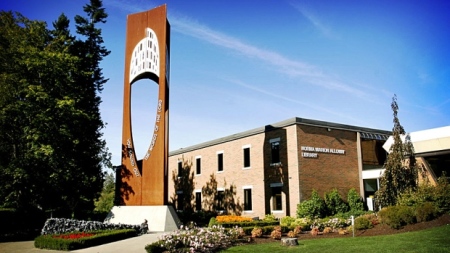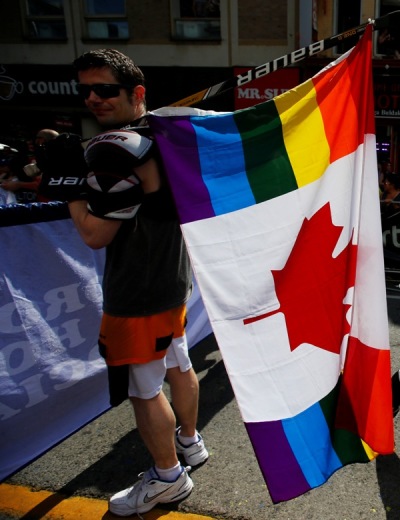Christian Law School Forced to Support Homosexuality If It Wants Accreditation, Canadian Court Rules

A court in Canada has ruled that a Christian law school can be denied accreditation for having a policy in opposition to homosexuality.
In a ruling made last week, a three-judge Divisional Court of the Ontario Superior Court of Justice ruled against Trinity Western University, which had filed a lawsuit against the Law Society of Upper Canada after it denied accreditation to the evangelical Christian university based in Vancouver, British Colombia, in April 2014.
At issue was Trinity Western's Community Covenant, which requires students and faculty to "voluntarily abstain" from "sexual intimacy that violates the sacredness of marriage between a man and a woman."

"The university's mission, core values, curriculum and community life are formed by a firm commitment to the person and work of Jesus Christ as declared in the Bible," reads the covenant. "The community covenant is a solemn pledge in which members place themselves under obligations on the part of the institution to its members, the members to the institution, and the members to one another."
Other actions that the covenant calls for its community to abstain from include "gossip, slander, vulgar/obscene language," ... "stealing, misusing or destroying property belonging to others," ... "drunkenness, under-age consumption of alcohol, and the use or possession of illegal drugs."
The court's decision against Trinity Western reads, in part: "The fact remains that the effect of the Community Covenant is to exclude certain persons from eligibility for all of the spaces available at TWU's law school. ... That reduces their opportunities for acceptance to law school in comparison with all other persons, and it does so on a discriminatory basis."
The Ontario Divisional Court is not the only province wherein Trinity Western is fighting a rejected accreditation from a regional law society.
In January, the Nova Scotia Supreme Court ruled in favor of Trinity Western in its lawsuit against the Nova Scotia Barristers' Society.
Justice Jamie S. Campbell of the court concluded that the society's "resolution and regulation infringe on the freedom of religion of TWU and its students in a way that cannot be justified."
"For many people in a secular society religious freedom is worse than inconsequential. It actually gets in the way. It's the dead hand of the superstitious past reaching out to restrain more important secular values like equality from becoming real equality," wrote Campbell.
"The discomforting truth is that religions with views that many Canadians find incomprehensible or offensive abound in a liberal and multicultural society. The law protects them and must carve out a place not only where they can exist but flourish."
Trinity Western provided The Christian Post with a statement from university spokesman Guy Saffold, who focused on how the Divisional Court acknowledged that there was "a breach of religious freedom rights in this case."
"The Court's ultimate decision against TWU is starkly at odds with the Supreme Court of Canada's 2001 decision directing approval of TWU¹s teacher education program," said Saffold. "It points a knife at the freedom of faith communities across Canada to hold and practice their beliefs."
Janet E. Minor, treasurer for the Law Society, said in a statement shared with CP that they are "pleased the Court confirmed the Law Society's jurisdiction, and that Convocation's decision is a reasonable one."
Minor's statement highlighted certain points of the ruling in Trinity Western University v. The Law Society of Upper Canada, including the Court's statement that the Law Society "was entitled to balance the applicants' rights to freedom of religion with the equality rights of its future members, who include members from two historically disadvantaged minorities (LGBTQ persons and women)."
Trinity Western plans to appeal the Divisional Court ruling. Meanwhile, a third legal case regarding accreditation is being processed in British Columbia, with a judicial review hearing scheduled for Aug. 24-28.





















